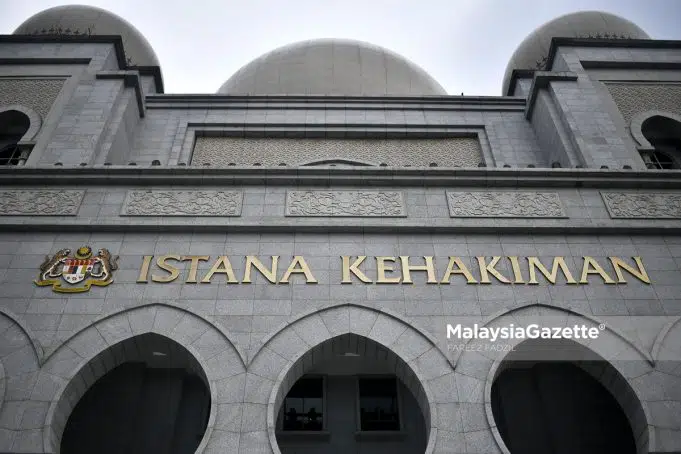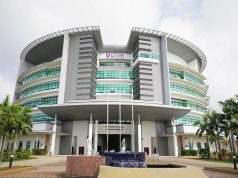The addendum remains steadfast as the King’s decree, unaffected by the uproar surrounding its alleged unconstitutionality. Despite the protests and claims of legal overreach, the King has resolutely affirmed that the decree is indeed his will, rendering any objections little more than a futile resistance to the inevitable. After all, when the monarch himself asserts his authority, the question of legitimacy becomes a mere formality, subordinated to the sovereign’s declaration.
BACKGROUND TO ARTICLE 42
The power of pardon, enshrined in Article 42 of the Federal Constitution of Malaysia,
is widely regarded as a noble and essential expression of the nation’s commitment to
mercy and justice. Reserved exclusively for the King, this prerogative stands as a
profound counterbalance to the rigid application of law, offering a touch of humanity
and compassion in the face of otherwise unyielding legal frameworks. It serves to
temper the harshness of justice, allowing for phased pardons, conditional clemency,
and even political rehabilitation where appropriate, offering the potential for
redemption and reintegration.
In this context, the King’s authority to exercise this power is not simply a matter of legal
formality; it is an embodiment of a broader principle of wise and compassionate
governance. Critics, however, have raised concerns, questioning the King’s
prerogative to issue an addendum to an existing pardon order. Yet such objections,
while voiced with apparent fervour, fail to appreciate the broader scope of royal
discretion. The King, as the ultimate guarantor of justice and mercy in the realm, is
entrusted with the authority to interpret and refine his own decrees as he sees fit, within
the parameters of the Constitution.
To suggest that the King’s issuance of an addendum undermines the intent of the
original pardon order is to ignore the very essence of his role—one that allows for
flexibility and responsiveness to evolving circumstances. After all, a decree of mercy
should not be shackled by rigid formalism, but rather, guided by the moral
responsibility to ensure fairness and justice in ever-changing contexts. Therefore, the
King’s right to amend, update, or refine his pardon orders through an addendum is not
only legitimate but is, in fact, an extension of his sovereign duty to dispense justice in
a manner that reflects the nuances of individual cases. Any objections to this
prerogative, ultimately, pale in comparison to the weight of the King’s constitutional
and moral mandate.
Article 42(1) grants the King the authority to issue pardons, reprieves, respites, or
commutations of sentences. This provision provides the King with considerable
discretion in adjusting punishments. Notably, it does not stipulate that a pardon must
be a singular event. The idea of granting a pardon in instalments can be understood
through the concepts of commutation and conditional pardons. Commutation refers to
the act of reducing the length or severity of a sentence without fully erasing it. This
implies the possibility that an individual could receive a series of reductions over time,
effectively leading to a gradual alleviation of their punishment. On the other hand, a
conditional pardon permits an individual to serve part of their sentence under specific
conditions, such as probation or house arrest. Such arrangements can logically
facilitate a phased return to full civil rights, suggesting a model where pardon-like
benefits are dispensed incrementally.
ROYAL PARDON– IN INSTALMENT
The King is vested with the discretion to grant pardons without being bound to strictly
predefined limits. This means that the interpretation of what constitutes a pardon can
extend beyond merely reducing or extinguishing a sentence. The potential for issuing
additional conditions or stipulations through Addendum — such as house arrest,
probation, or other modified forms of supervision—could be inherently constitutional,
as long as they align with broader principles of justice and due process.
The provision acknowledges that clemency decisions must consider not just the letter
of the law but the historical and social context of cases, providing flexibility in how
justice is administered. This perspective allows for Addendum to be viewed as a
legitimate tool in the exercise of clemency.
Mokhtar Hashim serves as a classic example of receiving a pardon in instalments. His
appeal against the death sentence was rejected by the Federal Court on July 23, 1983.
However, on March 2, 1984, the Pardons Board commuted his death sentence to life
imprisonment. Eight years later, he was released from prison following a royal pardon.
The first pardon in 1984 transformed his death sentence into life imprisonment, while
the second pardon, granted in 1991, was a full pardon issued by the King. Isn’t this
process indicative of an instalment approach to pardoning?
The case of Mokhtar Hashim exemplifies a situation where successive pardons and
their conditions illustrate the King’s ability to adapt the terms of punishment creatively.
After initially being sentenced to death, Mokhtar received a commutation to life
imprisonment and ultimately a full pardon years later. This layered approach
demonstrates how the royal prerogative can evolve.
Lim Kit Siang’s release from detention under the Internal Security Act (ISA) in 1990
wasn’t labelled a pardon initially, yet his subsequent restoration of rights indicated
incremental consideration toward restoring his political freedoms. The case shows that
while it wasn’t a formal instalment, the process of reinstating political rights occurred
in stages following the King’s clemency.
HIS MAJESTY’S EXCLUSIVE DISCRETION
The long-standing and consistently established legal position in Malaysia is that the
power of pardon, as outlined in Article 42 of the Federal Constitution, is exclusively
vested in the King.
The Supreme Court in Sim Kie Chon v Superintendent of Pudu Prison & Ors [1985] 2
MLJ 385 clarified that the role of the Pardons Board is merely advisory. The Court
further stated: “It is our considered view that the power of mercy is a high prerogative
exercisable by the Yang di-Pertuan Agong or the Ruler of a State or the Yang diPertuan Negeri, as the case may be, who acts with the greatest conscience and care
and without fear of influence from any quarter.”
His Lordship, Suffian, L.P., in delivering the judgment in Public Prosecutor v. Lim Hiang
Seoh [1979] 2 MLJ 170, remarked: “When considering whether to confirm, commute,
remit or pardon, His Majesty does not sit as a court; he is entitled to consider matters
that courts, bound by the law of evidence, cannot take into account, and decides each
case based on grounds of public policy; such decisions are solely within the purview
of the executive. We cannot confirm or alter them; we have no jurisdiction to do so.”
Additionally, in Karpal Singh v. Sultan of Selangor [1988] 1 MLJ 64, the court held that
it is not mandatory for the Yang di-Pertuan Agong (YDPA) to act on the advice of the
Pardons Board concerning clemency matters.
Furthermore, in Datuk Seri Anwar bin Ibrahim v. Mohd Khairul Azam bin Abdul Aziz
and Another Appeal [2023] 2 MLJ 545, the court affirmed that the power to grant
pardons is to be exercised exclusively and personally by the YDPA, underscoring that
such an exercise is not subject to judicial review.
This consistent legal interpretation reinforces the understanding that the power of
pardon lies firmly in the hands of the King, free from external influence and strictly
within the realm of His Majesty’s discretionary powers.
ROYAL PARDON OF DATUK SERI ANWAR IBRAHIM – SUI GENERIS WITHOUT A
PARDON BOARD
Similarly, the pardon granted to Datuk Seri Anwar Ibrahim in 2018 reflects that the
pardon was not merely a single, fixed event but a culmination of ongoing discussions
regarding his political circumstances and public support for his release. The
subsequent arrangements made regarding his political rights post-pardon further
highlight that the nature of clemency can indeed change in character, depending on
context and prevailing conditions.
It is noteworthy that the Palace issued the letter granting a pardon to Datuk Seri Anwar
Ibrahim on May 16, 2018, despite the fact that no Cabinet had been formed following
the 14th General Election and there was no Minister of Federal Territory at the time.
The pardon was granted without the involvement of a Pardons Board, with His Majesty
the King exercising his prerogative to grant the pardon independently.
Hence, the constitutionality of Addendum in the context of royal pardons can indeed
be grounded within the framework of Article 42 of the Federal Constitution, supported
by judicial precedent and evolving interpretations of justice. Datuk Seri Anwar
Ibrahim’s pardon is a classic example of how modifications were made. The
responsive nature of the Malaysian legal system exemplifies its capacity to address
the complexities inherent in individual cases, allowing for modifications to clemency
that align with societal values of rehabilitation and justice. As the legal landscape
continues to evolve, the potential for Addendum to reflect a thoughtful approach to the
exercise of the royal prerogative will strengthen the principles of mercy and equity
under Malaysian constitutional law.
The argument that the Malaysian Constitution does not permit house arrest orders,
and that no such precedent exists, overlooks the evolving nature of legal
interpretations and the principles underlying restorative justice within the Malaysian
legal framework.
Firstly, while the Constitution may not explicitly outline “house arrest” as a recognized
form of punishment, it does provide considerable discretion to the King in matters of
clemency under Article 42. This discretion affords the possibility of imposing alternative
forms of confinement that fall within the realm of rehabilitative justice. Such
alternatives can include conditional pardons, which inherently allow for arrangements
like house arrest, especially in cases where rehabilitation and reintegration are
prioritized over punitive measures.
THE EVOLUTION OF ROYAL PARDON IN LIM KIT SIANG’S CASE
Following his release from detention in 1990, Lim Kit Siang sought a royal pardon to
restore his political rights, which had been revoked under the Internal Security Act
(ISA). His application was not merely for personal redemption but also aimed at
reinstating his capacity to engage actively in Malaysian politics. The King, after
considering the advice of the Pardons Board alongside the political landscape, granted
Lim Kit Siang a pardon. This pivotal decision facilitated his return to politics and
enabled him to resume his role as a prominent opposition figure. Could we now argue
that this decision was unconstitutional?
The pardon granted to Lim Kit Siang in 1990 serves as a seminal example of how the
royal prerogative to grant pardons operates within the Malaysian constitutional
framework. It highlights the power dynamics at play between the monarchy and the
political arena, demonstrating the King’s authority to influence political trajectories
while adhering to constitutional mandates. This case exemplifies the delicate interplay
between the advice of the Pardons Board and the ultimate discretionary power
afforded to the monarch, establishing a precedent for future clemency considerations
in politically sensitive situations.
Ultimately, the Lim Kit Siang case underscores the importance of recognizing the
constitutional powers vested in the monarchy and the contextual nuances surrounding
the exercise of clemency. It reinforces the notion that royal pardons can serve not only
as instruments of justice but also as vital components of political reconciliation and
restoration in Malaysia’s complex socio-political landscape. The ongoing evolution of
how pardons are administered confirms the adaptability of the legal framework to meet
the needs of a changing political environment.
As demonstrated by cases like Mokhtar Hashim, Lim Kit Siang, and Datuk Seri Anwar
Ibrahim, the exercise of this prerogative transcends mere judicial outcomes,
influencing broader themes of political reconciliation, restorative justice, and public
policy.
REVISITING THE OPPOSITION’S STAND IN 2021
In September 2021, former Attorney-General Tan Sri Idrus Harun stirred considerable
controversy when he asserted that the King’s absolute power could be overridden if
the legitimacy of a new Prime Minister needed to be tested by any party other than the
monarch himself. Idrus argued that such a move would be inconsistent with the
Federal Constitution. This remark, concerning the vote of confidence in Parliament,
was swiftly condemned by the n opposition bloc which described it as “treasonous”
(derhaka) to the King. They accused Idrus of defying the King’s explicit wishes, as the
monarch had decreed that the new prime minister’s majority be tested in the Dewan
Rakyat when Parliament reconvened.
Fast forward to the present, and we find the same political body, strangely silent on
the issue of non-disclosure regarding the addendum to a pardon order, a matter that,
on the surface, appears to contradict the principles of transparency and constitutional
propriety they so ardently defend. One might wonder why they previously raised such
a hue and cry over any perceived slight to the King’s authority, is now notably absent
in holding the current Attorney-General to account. Is this a case of political
convenience trumping constitutional consistency, or perhaps an uncomfortable double
standard?
The crux of the matter is that the earlier condemnation of Idrus for questioning the
King’s authority seems at odds with their failure to challenge the secrecy surrounding
the addendum. Shouldn’t the same level of scrutiny and accountability apply when
matters concerning the King’s prerogative are at stake, regardless of political
alignment?
The King, as a constitutional monarch, operates within a framework designed to
ensure that his powers are exercised in accordance with the law, for the betterment of
the nation. He is expected to remain above the political fray, refraining from active
participation in partisan disputes. The notion that the monarch should now descend
into the political arena to defend his actions, whether related to a pardon addendum
or any other royal decree—defies the very principles of constitutional monarchy. The
expectation that the King should become embroiled in defending his own decrees
would erode the impartial and apolitical nature that the monarchy is meant to uphold.
Furthermore, this raises an important point about the separation of powers within
Malaysia’s democratic structure. The monarch’s role, as outlined in the Constitution,
is to provide guidance and governance in accordance with the law, not to engage in
daily political battles. The King’s discretion in matters such as pardons and addenda
is not merely a personal whim; it is an extension of his constitutional role and an
exercise in the balancing of justice, compassion, and legal authority. To demand that
the monarch justify or defend such decisions in the public sphere is to undermine the
very institution of constitutional monarchy itself.
If the same energy that was directed toward condemning the Attorney-General for
allegedly overstepping his bounds were applied here, there might be a more consistent
and principled approach to upholding the integrity of the constitutional framework.
However, as it stands, it is clear that political motivations are at play, leaving the King’s
prerogatives to be questioned when convenient, and ignored when inconvenient.
In defense of the King, it must be emphasized that his authority is not bound by the
fluctuating whims of political factions. His role is to uphold the Constitution, and to act
in the best interests of the nation, regardless of the political tides. Those who would
challenge his actions must do so within the proper constitutional channels, not by
fostering selective criticism or demanding that he descend into the political fray. The
monarchy, as enshrined in the Constitution, must be allowed to operate without undue
political interference, lest we risk compromising the very principles of governance that
have sustained the nation.
CONCLUSION
The discussion surrounding phased pardons and conditional clemency, such as house
arrest, highlights the evolving and flexible nature of Malaysia’s legal framework. While
this flexibility is crucial to ensuring justice and fairness in an ever-changing world, it
also necessitates a commitment to transparency, especially when it comes to the
conditions or addendum tied to royal pardons. The non-disclosure of the addendum to
the pardon order has, understandably, sparked a range of concerns about due
process, public accountability, and the possible abuse of institutional power.
To question why the addendum was not disclosed earlier is, of course, a valid inquiry,
one that touches on the very essence of public trust and transparency. However,
instead of looking at the non-disclosure, some quarters too hastily accuse the King of
nefarious intent, and suggest that the non-disclosure is a sign of malfeasance, hich
are both premature and, dare I say, profoundly misguided. The monarch, vested with
the power to issue pardons and addendum in accordance with the law, acts within a
framework that, at its core, is designed to ensure justice, not to cater to the whims of
political factions or satisfy the public’s every curiosity. Indeed, it is not for the public to
demand an explanation for every nuance of a royal decree, nor is it the duty of the
monarch to bare every decision to the scrutiny of those whose interests may not align
with the higher goals of governance and justice.
When the King exercises his prerogative to issue an addendum to a pardon order, it
is an extension of his constitutional authority, not a move to be dissected by the
masses for every potential political angle. The insistence on transparency in this case,
particularly the demand to reveal the addendum’s details, reflects a narrow and,
frankly, naïve understanding of the role of the monarchy. The King’s decisions are not
beholden to the whims of popular opinion, nor are they expected to meet the approval
of every political group that may be quick to cry foul at anything that does not serve
their agenda.
Why, then, should the addendum be questioned? Is it not possible that the King’s
actions are motivated by a deeper concern for justice, a sensitivity to the complexities
of individual cases, and an adherence to constitutional principles that cannot always
be reduced to the transparent, bite-sized explanations the public demands? Surely,
the King, as the ultimate guardian of the nation’s laws, is not required to explain himself
at every juncture, particularly when his decisions are grounded in the Constitution
itself.
And yet, we hear the clamour for answers: What were the hidden motives behind the
Addendum? Does the King have power to issue Addendum? Could there be
something untoward lurking in the shadows? These questions, are also deeply cynical.
They suggest, perhaps, that the King’s actions are motivated by something less noble
than justice, that there is some underhanded agenda at play. But before jumping to
such conclusions, let us remember that the King’s prerogative to issue addendum is
neither capricious nor reckless. It is, by its very nature, an extension of royal discretion,
which the Constitution allows, and which is designed to serve the long-term stability
and integrity of the nation. To claim that there are hidden motives without any concrete
evidence is to indulge in speculation that does little to uphold the principles of
governance.
The real issue here is not the King’s right to issue an addendum, but rather the
selective interpretation of constitutional prerogatives that conveniently aligns with
political convenience. The non-disclosure of such an addendum, while understandably
frustrating to some, does point to a scandal waiting to be uncovered.
Ultimately, the nation must ask itself whether it truly understands the nature of a
constitutional monarchy. In this system, the King is not a puppet of public opinion nor
a pawn in political games. He is an arbiter of justice, a figure who acts in accordance
with his duty and responsibility to the nation—not to satisfy every faction’s demand for
transparency. The insistence on dissecting the addendum speaks less to a concern
for due process and more to a deeper, and perhaps less noble, desire for political gain
or influence.
The King’s prerogative to issue addendum is a rightful and constitutional power, and
any suggestion that this is somehow suspect merely reflects the cynical and selective
approach to governance that too often pervades the political discourse. Let us not
forget that true justice, as embodied by the monarchy, often requires actions that
transcend the immediate and the obvious, those which may not always be easily
understood, but are always undertaken with the integrity of the nation in mind.
“MERCY IS NOT THE SUBJECT OF LEGAL RIGHTS. IT BEGINS WHERE LEGAL RIGHTS END”
– LORD DIPLOCK
– Dato’ David Gurupatham, Advocates & Solicitors

















